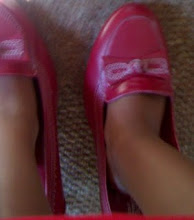
Born in 1938 to peasant parents, his fate was to be poor and uneducated, but as became common in his life, he defied the odds and set his life on a different course. He received an education at a church mission school, whilst working for the first black Dutch Reformed reverend, graduating with a then Standard 6 certificate. He worked in various jobs as a cleric, until eventually becoming a primary school teacher, and was to spend thirty-nine years in the profession he loved dearly. He married at the age of nineteen, growing old with his girl and remaining so evidently in love till the end.
So a year ago we shed many a tear for him and sang a song for his send off. His work colleagues talked about how he never missed a day of work, such was his devotion to a cause. His neighbours spoke of how he helped them plough their fields, how he gave food in times of drought, how he was always ready to assist, such was devotion to humanity. His church brethren said he literally built the church, so alive was his religion that he chose to preach with actions rather than words. His friends talked about how he inspired them to educate their children, he so believed in the power of an education, evident in his own struggle to obtain an education, getting a Cambridge Ordinary Level certificate at the tender age of 53. He inspired all his children, succeeding in producing a teacher, two engineers, a psychologist, and a medical practitioner.
But today we will not cry, we will celebrate his life. We sing and dance as we proudly remember the man that left us a good name, a name so recognizable and associated with honour in our home town. A name we will proudly carry into Africa and beyond, in the cooperate arena, in the business area. A name we will insist that our children carry well in their play, at school, at university, in their lives - a legacy we will endeavour to keep alive.
Today we unveil the way we summarised Someka’s life – no easy task, but we settled for:
Someka 1938 - 2007
A truly great and humble husband, father & grandfather
Who achieved his goals:
Your noble deeds will be remember for time immemorial
You left a legacy of love,
An inheritance of a good name
Your legacy will live on Wamambo
We celebrate a life well lived!
We loved him too, he was our father.
 As the sun begins to announce yet the end of another day, the women gather themselves.
As the sun begins to announce yet the end of another day, the women gather themselves.



